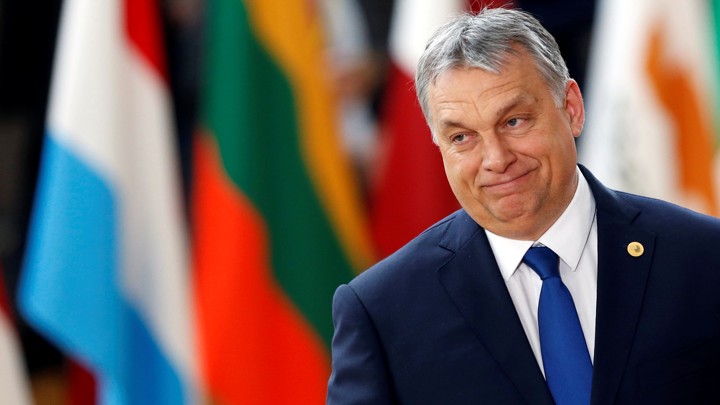
This past week, Freedom House published its annual report on the status of democracy around the world. In the Freedom in the World report, Hungary was categorized as “partly free” for the first time. This is also the first time a member of the European Union has been categorized as “partly free” and not “free”. Over the years, Hungary has gone from being a successful example of a former soviet-bloc, communist country that transitioned to a western-leaning democracy, to one of the most commonly referred to examples of democratic erosion. As mentioned by Nancy Bermeo, a political scientist and professor at Oxford, “we now face forms of democratic backsliding that are legitimized through the very institutions that democracy promoters have prioritized”, making distinguishing their illegitimate application very difficult (Bermeo, 2016). This is how Viktor Orban has eroded democracy in Hungary.
Since 2010, Orban’s government has passed thousands of laws that have served to expand his power. Using formal mechanisms, these “reforms” have had a large impact in areas crucial to the health of a democracy: the electoral process, the judiciary, state and independent media, and checks and balances. In 2010, Orban began his assault on the media with laws that allow the government to regulate and punish the news media for press coverage it considers “unbalanced or offensive to human dignity or common morals”. Such vague laws that can restrict speech are a long established tool utilized by authoritarian governments, which apply these laws selectively. This use of formal mechanisms is one of the tactics referred to by Ozan Varol, in his article, Stealth Authoritarianism. Even if penalties are avoided, vague laws cause citizens to fear critiquing the government too strongly, or risk facing a court case and fines.
By writing a new constitution, Orban consolidated more power and weakened checks and balances, as well the judiciary. New laws grant the power to select judges to the head of a new institution called the National Judicial Office, appointed by Orban. Further laws have lowered the required retirement age for judges, allowing Orban to pack the courts with his new appointments. By maintaining the veneer of an independent judiciary, the EU and other stakeholders are less likely to take action, but in reality the fairness of the courts has been compromised.
Another tool of stealth authoritarianism is amending electoral law. Changing the electoral process and redrawing the electoral map has allowed Orban’s party to stay in power despite getting fewer votes than in past elections. The electoral process itself still adheres to most definitions of democracy, and in some indicators Hungary’s democracy would rate highly. Tilting the playing field even further, Orban’s party has written election rules that essentially block any advertising on television and radio by political parties and candidates during the campaign period; however, the same laws don’t apply to the government, which can bombard citizens with its messages and accomplishments via a state-run media.
All of these measures raise the question of why the EU hasn’t been more active to stop this clear erosion of democracy. Orban himself has publicly called his ability to placate EU officials the “dance of the peacock”. By using rules from the laws of other democracies, even within the EU, Hungary has been able to deflect criticism. In response to critics who suggested that a new media law might be misused to curb media independence, Orbán responded: “There is not a single passage in the law that does not correspond to the media law in E.U. countries” (Varol, 2015). Orban has used this defense numerous times, for laws on media, civil society, and the electoral process among others.
To see the insidious nature of the laws requires attentive inspection, but to those less informed, these reforms and laws can help to boost legitimacy. The solution to the issue is not changing the laws, but the ways the government has utilized them. Princeton Professor Kim Lane Scheppele has written that the Orban government has been able to avoid serious sanctions from the EU by making small adjustments to comply with EU law. Furthermore, the vagueness and redundancy of the new legal order means that specific and and narrow changes required by the EU have little overall impact.
One possible explanation for the lack of a strong EU response is that the European People’s Party, Europe’s main alliance of center-right parties, relies on Fidesz’s votes in the European Parliament. The EPP leaders have done little to push back, fearing that expelling Orban from their coalition could tilt power in the European Parliament toward center-left parties. Now the EPP is divided over whether to keep Orban’s Fidesz party in the coalition, but the damage may have been done. The EPP should play the role of “gatekeeper” as Steven Levitsky and David Ziblatt described it, to prevent further democratic erosion in the EU, despite the fact that they would lose the support of one party in their coalition.
The current approach of the EU to reign in Hungary has not been effective. With the rise of stealth authoritarianism, simply looking for explicit cases of wrongdoing and blatantly undemocratic laws are not enough. In September 2018, the EU Parliament voted to launch sanctions against Hungary under Article 7, but this multistage process is unlikely to result in any swift action.
The EU’s approach to Hungary is still based around the “breach of the principles of the rule of law”. Instead, the EU must punish Hungary for its lack of democracy in practice, but political interests have prevented concrete action so far. A weak response will allow this erosion of democracy to spread across Europe. The action taken by the EU will influence other countries; a clear line must be drawn.
Sources cited:
Bermeo, Nancy. 2016. “On Democratic Backsliding.” Journal of Democracy
Varol, Ozan. 2015. “Stealth Authoritarianism.” Iowa Law Review 100(4):
Levitsky, Steven & Daniel Ziblatt. 2018. How Democracies Die. New York: Crown.
Image: FRANCOIS LENOIR / REUTERS, Creative Commons Zero license

0 Comments